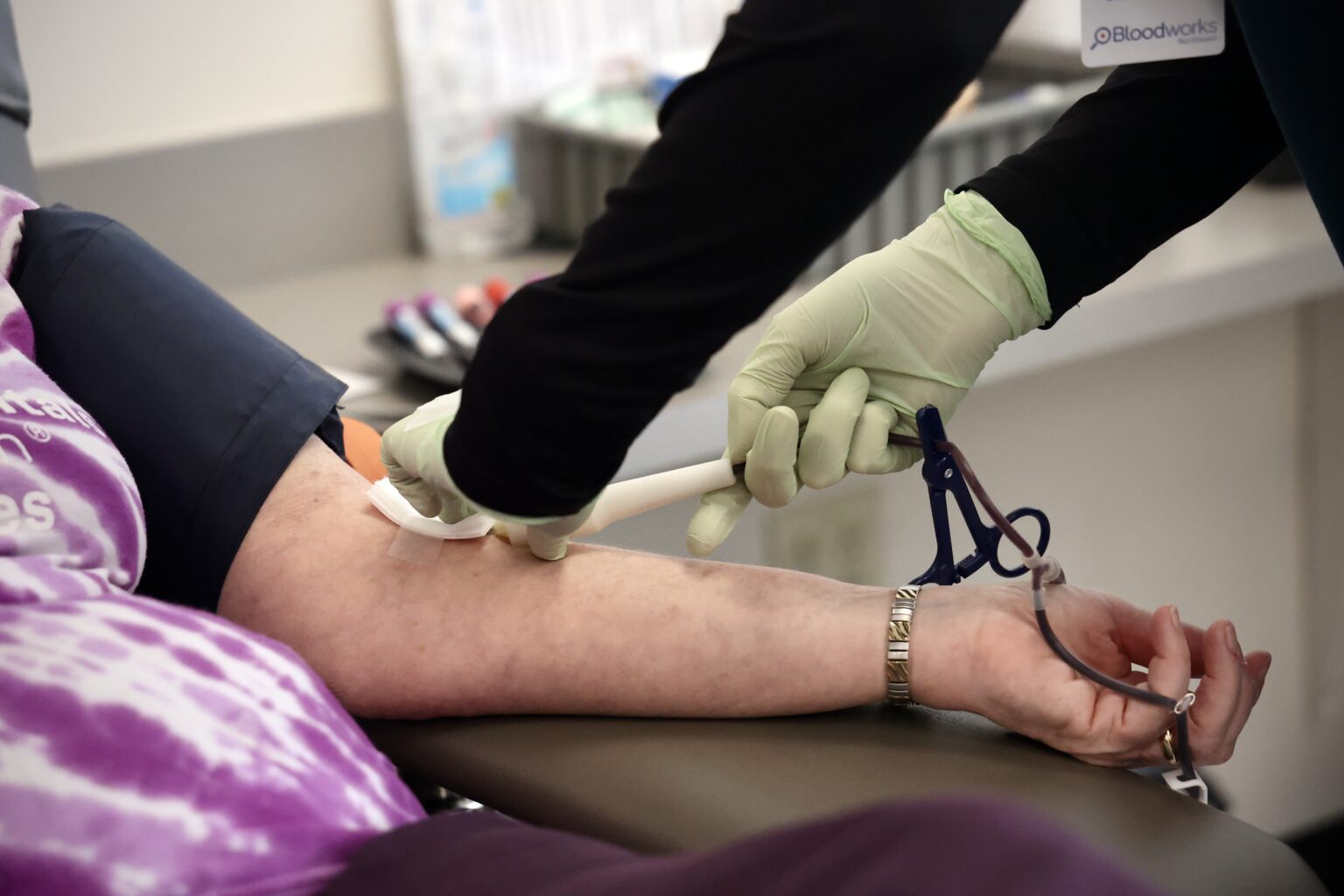A state and national blood shortage continue to vex local blood banks, hospitals and public officials, who are urging residents to donate blood to ensure supplies are adequate over the summer as injuries increase and donations fall.
The state Department of Health (DOH) is encouraging eligible residents to give blood. The summer months are “a critical time for blood donations,” and this summer, the need for blood is especially acute in light of “an ongoing nationwide blood shortage,” the DOH wrote in a release.
Vicki Finson, executive vice president for blood services at Bloodworks Northwest, said the blood bank’s reserves are about 15% below “where we need to be.” The shortage, Finson said, has been ongoing throughout 2022, partially because of the persistent effects of COVID-19.
But PeaceHealth St. Joseph Medical Center and other northwest Washington medical centers have not experienced disruptions to operations because of the shortage.
“So far, we’ve been grateful to say that it has not really impacted patient care, but it’s always on our worry list,” said Sudhakar Karlapudi, a chief medical officer at PeaceHealth. “Blood is a very precious product, and we have a very robust process on how we request it and how we utilize it. We monitor the current availability of our blood stock constantly.”
Karlapudi said that because of extensive coordination between hospitals and blood banks, PeaceHealth and other hospitals in the area have been able to weather the shortage.
“We have a process that estimates what kind of blood we will need for our elective cases, and we have a process to understand what an emergency would result in,” he said. “If we have a critical situation that’s requiring us to get additional blood, we reach out to additional blood banks. So far, our mechanisms have been good enough to maintain stock for our operations.”
Blood banks have protocols to assist medical centers and ensure that care is not disrupted when blood supplies are low, Finson said.
“Our medical team helps [medical centers] triage, and we move blood around more,” she said. “There may be some delays in transfusions and for some patients that’s OK, but obviously we need to make sure that the urgent needs are covered first.”
Summer is traditionally a time of heightened need for blood donations, Finson and Karlapudi said. Donations tend to drop off in the summer months, and injuries requiring transfusions rise.
“Summer is just a [season] where we see a lot of trauma … and trauma cases require more blood than non-trauma cases,” Karlapudi said. “It’s just the nature of the kind of diseases we’re seeing at certain times.”
“Every summer, blood centers across the country see a decrease in the number of people coming to donate” because of school closures, improving weather and increased travel, Finson said.
School blood drives are an important source of blood donations, Finson said. She added that medical professionals are especially concerned because blood supplies have been unusually low between January and May, suggesting that this summer’s shortage could be more severe than usual.
Both Finson and Karlapudi urged eligible donors to give blood. Finson said interested donors can make an appointment to give blood on Bloodworks Northwest’s website.
“Your community needs your help,” she said.



